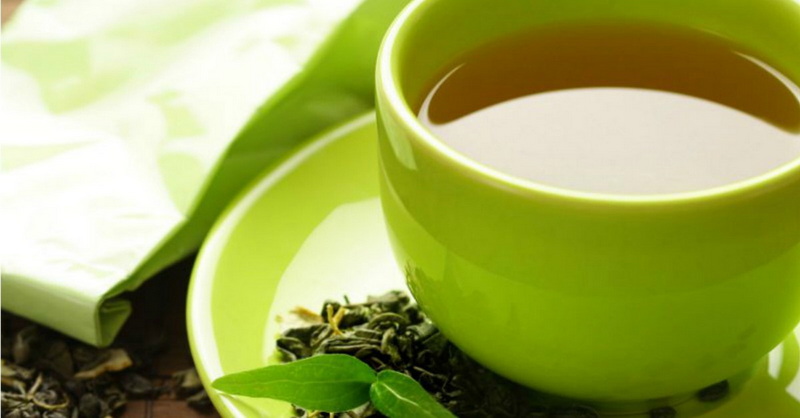Content Menu
● Understanding Green Tea Extract
● The Energy-Boosting Potential of Green Tea Extract
>> How Green Tea Extract Enhances Energy
● Scientific Evidence Supporting Energy Benefits
>> Studies on Energy and Metabolism
● Additional Health Benefits of Green Tea Extract
>> Cardiovascular Health
>> Liver Health
>> Brain Health
>> Blood Sugar Regulation
>> Cancer Prevention
● How to Incorporate Green Tea Extract into Your Routine
>> Dosage and Forms
>> Timing and Consumption
>> Precautions and Side Effects
● Conclusion
● FAQ About Green Tea Extract for Energy
>> 1. What is green tea extract, and how does it differ from green tea?
>> 2. How much green tea extract should I take for energy?
>> 3. Can green tea extract help with weight loss?
>> 4. Are there any side effects of taking green tea extract?
>> 5. Is it safe to take green tea extract every day?
● Citations:
Green tea, one of the most consumed teas globally, comes in a concentrated form known as green tea extract[1]. This extract packs the same punch of active ingredients as a regular cup of green tea into a single capsule[1]. Celebrated for its rich antioxidant content, green tea extract is associated with a host of health benefits, including enhanced heart, liver, and brain function, better skin, and reduced cancer risk[1].
The key to green tea extract's health benefits lies in its high concentration of antioxidants[1]. These antioxidants combat oxidative stress by neutralizing harmful free radicals, which are molecules that cause cell damage[1]. Cell damage is a culprit in aging and various diseases[1]. Polyphenol antioxidants, especially catechins, are abundant in green tea extract, with epigallocatechin gallate (EGCG) being the most studied and beneficial[1]. Studies indicate that green tea extract boosts the body's antioxidant capacity, guarding against oxidative stress and related health issues[1].

Understanding Green Tea Extract
Green tea extract is derived from the Camellia sinensis plant and is packed with polyphenols, which possess antioxidant, anti-inflammatory, and anti-cancer properties[6][5]. The extract is produced by steaming, drying, and then extracting green tea leaves, and it is available in various forms, including capsules, liquids, and powders[1].
Key components of green tea extract:
-Epigallocatechin Gallate (EGCG): The most abundant and well-researched catechin, known for its potent antioxidant and anti-inflammatory effects[1].
-Other Catechins: Including epicatechin (EC), epigallocatechin (EGC), and epicatechin gallate (ECG), which contribute to the overall health benefits[1].
-Caffeine: A natural stimulant that can enhance energy levels and mental alertness[1].
The Energy-Boosting Potential of Green Tea Extract
Green tea extract has gained popularity as a natural energy booster. Its ability to enhance energy levels is multifaceted, stemming from its unique combination of catechins and caffeine[1]. While the caffeine content provides an immediate lift, the catechins offer sustained energy by modulating various physiological processes[1].
How Green Tea Extract Enhances Energy
-Caffeine Content: Green tea extract contains caffeine, a well-known stimulant that increases alertness and reduces fatigue. Caffeine works by blocking adenosine, a neurotransmitter that promotes relaxation and sleepiness[1].
-Catechins and Thermogenesis: Catechins, particularly EGCG, can enhance thermogenesis, the body's process of producing heat by burning calories. This process not only aids in weight loss but also boosts energy levels by increasing metabolic rate[1].
-Antioxidant Effects: By reducing oxidative stress and inflammation, green tea extract helps improve overall cellular function, leading to enhanced energy production and reduced fatigue[2].
Scientific Evidence Supporting Energy Benefits
Numerous studies have explored the effects of green tea extract on energy levels, metabolism, and physical performance. These studies provide insights into how green tea extract can be an effective energy enhancer.
Studies on Energy and Metabolism
-Increased Fat Oxidation: Research has shown that green tea extract can increase fat oxidation, meaning the body burns more fat for energy. A study published in the American Journal of Clinical Nutrition found that green tea extract significantly increased 24-hour energy expenditure and fat oxidation compared to a placebo[6].
-Improved Exercise Performance: Green tea extract has been shown to improve exercise performance by increasing endurance and reducing fatigue. A study in the Journal of Nutritional Biochemistry reported that men who took green tea extract for four weeks increased their running distance by 10.9%[1].
-Enhanced Metabolic Rate: Green tea extract can boost metabolism, which helps the body convert food into energy more efficiently. This effect is attributed to the combined action of caffeine and catechins, which stimulate thermogenesis and fat oxidation[1].

Additional Health Benefits of Green Tea Extract
Besides its energy-boosting properties, green tea extract offers a wide array of health benefits, making it a valuable addition to a balanced lifestyle.
Cardiovascular Health
-Lowering Blood Pressure: Green tea extract has been shown to help regulate blood pressure, reducing the risk of hypertension and supporting overall cardiovascular health[1].
-Reducing Blood Fat Levels: The extract can help lower levels of bad cholesterol (LDL) and triglycerides, which are major risk factors for heart disease[1].
Liver Health
-Protecting Against Liver Diseases: The catechins in green tea extract may reduce inflammation associated with liver diseases like nonalcoholic fatty liver disease (NAFLD)[1].
-Improving Liver Function: Studies have demonstrated that green tea extract can improve liver function by reducing oxidative stress and promoting liver cell regeneration[1].
Brain Health
-Improving Cognitive Function: Green tea extract has neuroprotective properties that can enhance cognitive function, including memory and attention[8].
-Reducing Risk of Neurodegenerative Diseases: The antioxidants in green tea extract may help protect against neurodegenerative diseases like Alzheimer's and Parkinson's by reducing oxidative stress and inflammation in the brain[8].
Blood Sugar Regulation
-Enhancing Insulin Sensitivity: Green tea extract can improve insulin sensitivity, helping regulate blood sugar levels and reduce the risk of type 2 diabetes[1].
-Lowering Blood Sugar Levels: Studies have shown that green tea extract can lower blood sugar levels after meals, promoting better glucose control[1].
Cancer Prevention
-Antioxidant and Anti-Cancer Properties: The polyphenols in green tea extract, particularly EGCG, have anti-inflammatory and anticancer properties that may help prevent the development and growth of various types of cancer, including breast, prostate, and skin cancer[4][5].
-Inhibiting Cancer Cell Growth: Research suggests that green tea extract can inhibit the growth of cancer cells and reduce the spread of cancer[4].
How to Incorporate Green Tea Extract into Your Routine
To maximize the energy-boosting and health benefits of green tea extract, it is essential to use it correctly and safely.
Dosage and Forms
-Recommended Dosage: The typical recommended dose of green tea extract is between 250–500 mg per day[1]. It is best to start with a lower dose and gradually increase it to assess tolerance.
-Available Forms: Green tea extract is available in capsule, liquid, and powder forms, offering flexibility in how you consume it[1].
Timing and Consumption
-With Food: It is advisable to take green tea extract with food to enhance absorption and minimize the risk of liver damage[1].
-Avoid Empty Stomach: Taking green tea extract on an empty stomach can increase the risk of side effects, so it's best to consume it with a meal[1].
Precautions and Side Effects
-Caffeine Sensitivity: Individuals sensitive to caffeine should be cautious when taking green tea extract, as it can cause anxiety, insomnia, and rapid heartbeat[1].
-Liver Damage: High doses of green tea extract can be toxic and may lead to liver damage. It is important to adhere to the recommended dosage[1].
-Drug Interactions: Green tea extract may interact with certain medications, such as blood thinners and heart medications. Consult with a healthcare professional before starting green tea extract, especially if you have underlying health conditions or are taking medications[1].
Conclusion
Green tea extract is a powerhouse of health benefits, primarily due to its high antioxidant content. Its potential to boost energy levels is supported by scientific evidence, which highlights its ability to enhance metabolism, increase fat oxidation, and improve exercise performance. Beyond energy, green tea extract offers a plethora of health advantages, including cardiovascular support, liver protection, brain health enhancement, blood sugar regulation, and cancer prevention.
To harness the benefits of green tea extract safely, it is crucial to follow recommended dosages, consume it with food, and be mindful of potential side effects and interactions. By integrating green tea extract into a balanced lifestyle, you can unlock its full potential for enhanced energy and overall well-being. Always remember to consult with a healthcare professional before starting any new supplement to ensure it is appropriate for your individual health needs.

FAQ About Green Tea Extract for Energy
1. What is green tea extract, and how does it differ from green tea?
Green tea extract is a concentrated form of green tea, containing a higher amount of active ingredients like catechins and caffeine. While green tea is made by steeping tea leaves in hot water, green tea extract is derived by extracting these compounds from the leaves, resulting in a more potent supplement[1].
2. How much green tea extract should I take for energy?
The recommended dosage of green tea extract is typically between 250-500 mg per day, taken with food. It's best to start with a lower dose to assess your tolerance and gradually increase it as needed. However, it's essential to consult with a healthcare professional before starting any new supplement regimen[1].
3. Can green tea extract help with weight loss?
Yes, green tea extract may aid weight loss by increasing the number of calories your body burns through thermogenesis. The catechins and caffeine in green tea extract have been shown to regulate hormones that enhance thermogenesis and promote fat oxidation[1].
4. Are there any side effects of taking green tea extract?
While green tea extract is generally safe, it can cause side effects, especially in high doses. Common side effects include caffeine-related issues like anxiety, insomnia, and rapid heartbeat. In rare cases, high doses of green tea extract have been linked to liver damage. It's important to adhere to the recommended dosage and consult with a healthcare provider if you experience any adverse effects[1].
5. Is it safe to take green tea extract every day?
Taking green tea extract daily is generally safe for most people when taken in recommended doses and with food. However, long-term safety data is still limited, so it's advisable to consult with a healthcare professional before making it a regular part of your routine. They can provide personalized advice based on your health status and any medications you may be taking[1].
Citations:
[1] https://www.healthline.com/nutrition/10-benefits-of-green-tea-extract
[2] https://pubmed.ncbi.nlm.nih.gov/38031409/
[3] https://www.bodybuilding.com/content/everything-you-need-to-know-about-green-tea-extract.html
[4] https://www.mountsinai.org/health-library/herb/green-tea
[5] https://www.urmc.rochester.edu/encyclopedia/content?contenttypeid=19&contentid=greenteaextract
[6] https://pmc.ncbi.nlm.nih.gov/articles/PMC3649093/
[7] https://www.cancer.gov/research/participate/clinical-trials/intervention/green-tea-extract
[8] https://pmc.ncbi.nlm.nih.gov/articles/PMC6412948/






























